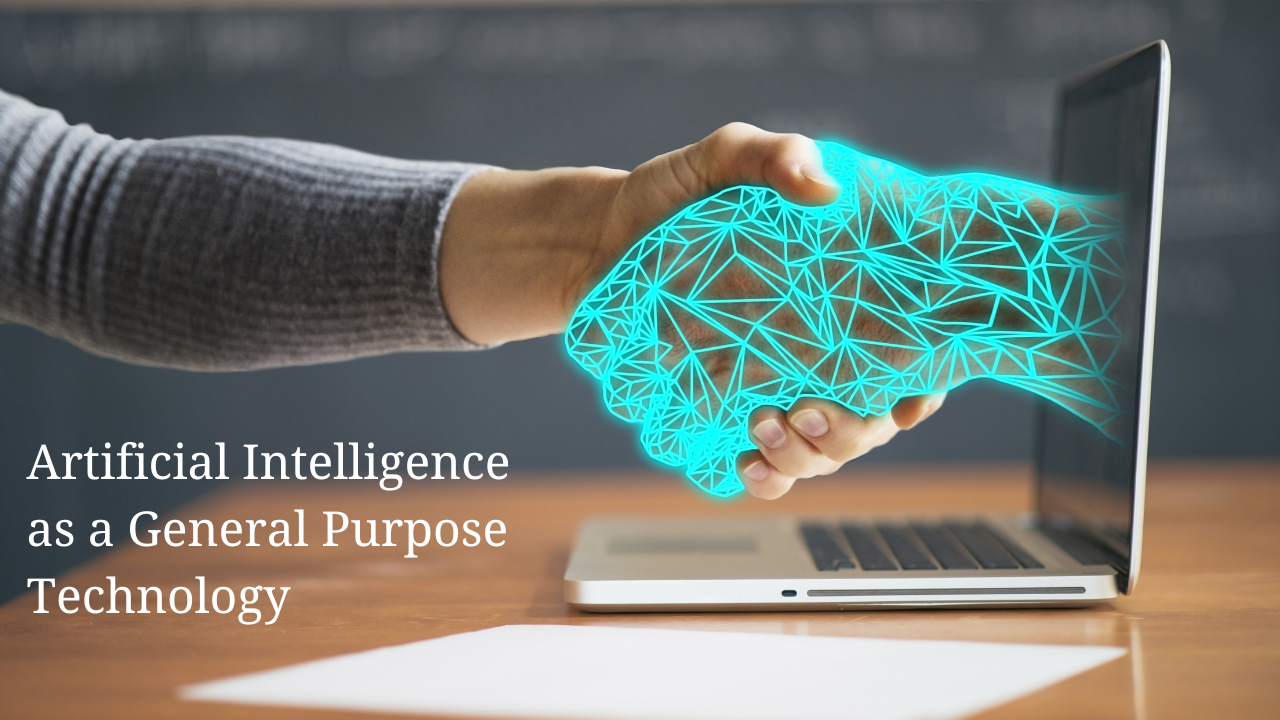Artificial Intelligence (AI) is everywhere these days. It’s in our phones, our cars, even in the way we shop online. I remember when AI was just a sci-fi concept, something you’d see in movies about the distant future. Now, it’s a reality, and not just in some specialized lab. AI has evolved into what experts call a General-Purpose Technology (GPT), which is just a fancy way of saying it’s a technology that’s so versatile and impactful, it’s changing almost every aspect of our lives.
But what does it really mean for AI to be a general-purpose technology? How is it different from other tech trends? And more importantly, how is it shaping the world around us? Well, grab a cup of coffee—or maybe save that for after dinner—and let’s explore this fascinating topic together.
What is a General-Purpose Technology?
Let’s start with the basics. A general-purpose technology is something that can be used in a wide range of industries and applications. Think about electricity or the internet. These are technologies that aren’t limited to one specific use; instead, they become foundational to many different fields. AI is now on that level. It’s no longer just about robots or voice assistants—it’s being integrated into everything from healthcare to finance, and even art.
When I first started diving into AI, I was amazed by its potential. I thought, “Wow, this is going to change how we live.” And it really has. Just like how electricity revolutionized industries in the 20th century, AI is set to do the same for the 21st century. But let’s not get ahead of ourselves. We’ll get into the specifics in a bit.
AI’s Versatility
Okay, so what makes AI so versatile? I mean, we’ve had computers for a while now, right? The thing with AI is that it’s not just about crunching numbers or following pre-set rules. AI can learn. It can adapt. And that’s what sets it apart from traditional computing.
Take machine learning, for example. This is a subset of AI that allows systems to improve themselves over time without human intervention. When I come to think about it, it’s like teaching a kid to ride a bike. At first, they might wobble and fall, but with practice, they get better. Similarly, AI systems learn from data, and the more data they have, the better they become.
This learning ability makes AI applicable to so many different areas. In healthcare, for instance, AI can analyze medical records and predict patient outcomes. In finance, it can assess risks and detect fraud. And in the automotive industry, it’s driving the development of self-driving cars. The possibilities are endless, and that’s why AI is considered a general-purpose technology.

Impact Across Various Industries
Now, let’s dig a little deeper into how AI is transforming specific industries. When I go this side, exploring these impacts, I realize just how interconnected everything is.
Healthcare
One of the most exciting applications of AI is in healthcare. Imagine going to the doctor and having your diagnosis aided by an AI system that has analyzed millions of similar cases. This isn’t science fiction—it’s happening right now. AI is being used to analyze medical images, predict diseases, and even suggest personalized treatment plans.
But it’s not just about diagnosing illnesses. AI is also helping with drug discovery, which has always been a time-consuming and expensive process. With AI, researchers can sift through vast amounts of data to identify potential new drugs much faster than before. This could lead to new treatments and cures for diseases that were previously untreatable.

Finance
In the financial sector, AI is making waves by helping institutions manage risk, detect fraud, and even automate trading. If you’ve ever gotten a notification from your bank about a suspicious transaction, that’s likely an AI system at work. These systems analyze patterns of behavior and can spot anomalies that a human might miss.
AI is also revolutionizing how we invest. Robo-advisors, which are AI-driven platforms, can help manage investment portfolios with minimal human intervention. They use algorithms to assess risk tolerance, market conditions, and investment goals, making personalized recommendations that are often as good as, if not better than, those made by human advisors.

Manufacturing
When I come this side, to the manufacturing world, AI is helping companies optimize production lines, reduce waste, and even predict equipment failures before they happen. This is known as predictive maintenance, and it’s saving companies millions of dollars in downtime.
AI-driven robots are also becoming more common in manufacturing, taking on tasks that are repetitive or dangerous for humans. These robots can work alongside humans, increasing efficiency and reducing the risk of injury.

The Challenges of AI as a General-Purpose Technology
Of course, it’s not all sunshine and rainbows. As with any powerful technology, AI comes with its own set of challenges. One of the biggest concerns is the impact on jobs. When I go to dinner with friends, this is often a hot topic of discussion. Will AI take over jobs? The answer is complex.
While AI can automate many tasks, it also creates new opportunities. However, there’s no denying that some jobs, particularly those that involve routine tasks, are at risk. The key is to adapt and upskill, learning how to work alongside AI rather than compete with it.
Another challenge is the ethical implications of AI. How do we ensure that AI systems are fair and unbiased? How do we protect our privacy in a world where AI systems can analyze vast amounts of personal data? These are questions that society needs to address as AI continues to evolve.

The Future of AI as a General-Purpose Technology
Looking ahead, it’s clear that AI will continue to be a driving force in technological innovation. When I come this side, thinking about the future, I see AI becoming even more integrated into our daily lives. We’re already seeing AI in our homes with smart speakers and appliances, and this trend will only accelerate.
In education, AI could personalize learning experiences, helping students learn at their own pace. In entertainment, AI is already being used to create personalized content recommendations, and it might even help create new forms of art.
But perhaps the most exciting potential lies in the things we can’t even imagine yet. Just as electricity and the internet gave rise to new industries and ways of living, AI will undoubtedly do the same.

Final Thoughts
So, there you have it—a deep dive into AI as a general-purpose technology. It’s a topic that’s both fascinating and a little daunting, but one thing is for sure: AI is here to stay, and it’s going to shape our future in ways we’re only beginning to understand.
As I’m about to head off to dinner, I’m left with a sense of excitement about what’s to come. AI is a tool, and like any tool, it’s up to us to use it wisely. Whether it’s improving healthcare, revolutionizing finance, or creating entirely new industries, AI has the potential to make our lives better. The future is bright, and I, for one, can’t wait to see where AI takes us next.














